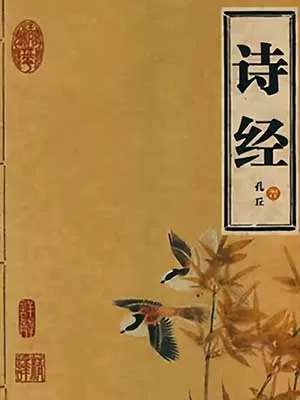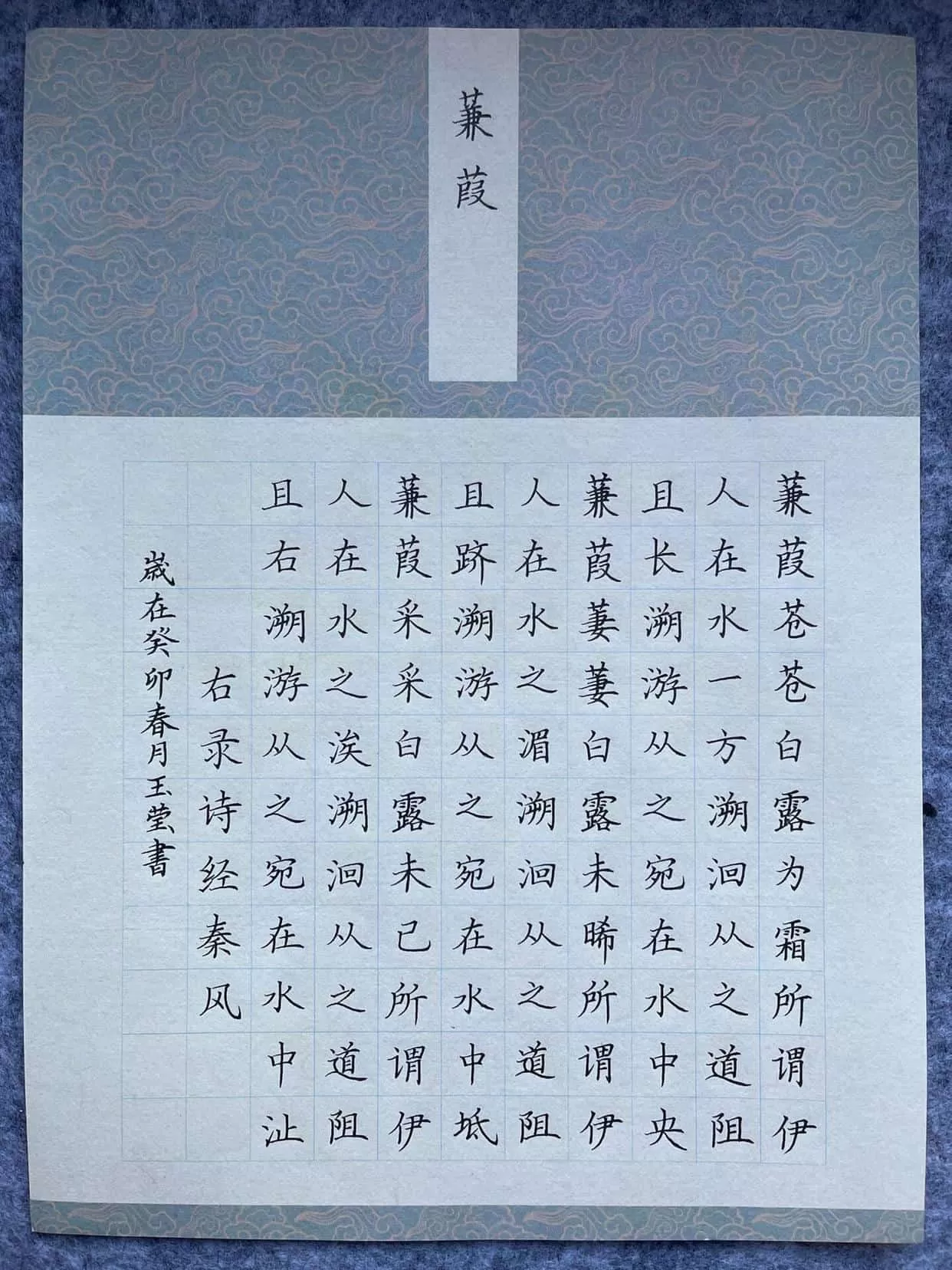
The Book of Songs, the inception of ancient Chinese poetry and the earliest anthology of poems, collects 311 poems dating from the early Western Zhou Dynasty to the mid-Spring and Autumn Period (11th century BC to 6th century BC). Among them, six are "sheng poems," which have titles but no content (namely, Nan Gai, Bai Hua, Hua Shu, You Geng, Chong Qiu, and You Yi), reflecting the social landscape of the Zhou Dynasty over a span of about five hundred years from its early days to its later period.
The authors of The Book of Songs are anonymous, with the vast majority untraceable, traditionally attributed to being collected by Yin Jifu and compiled by Confucius. In pre-Qin times, it was known as The Songs or, taking its approximate number, Three Hundred Songs. During the Western Han Dynasty, it was revered as a Confucian classic and came to be called The Book of Songs, a name that has persisted to this day. The content of The Book of Songs is divided into three parts: Feng, Ya, and Song. In terms of techniques, it is categorized into Fu, Bi, and Xing. Feng comprises ballads from various regions during the Zhou Dynasty; Ya is the orthodox and elegant music of the Zhou people, further divided into Xiaoya (Minor Elegance) and Daya (Major Elegance); Song consists of hymns used in sacrifices at the royal court and aristocratic ancestral temples, subdivided into Zhou Song, Lu Song, and Shang Song.
Confucius once said, "Inspired by The Songs," and "Of the three hundred poems in The Songs, in a word, they may be summed up as: 'Thoughts are without evil.'" Among the pre-Qin philosophers, many, such as Mencius, Xunzi, Mozi, Zhuangzi, and Han Feizi, frequently quoted The Songs in their arguments and expositions. Zuo Zhuan also often cites poems from The Songs as evidence. By the time of Emperor Wu of Han, The Book of Songs was revered as a classic by Confucian scholars and became one of the Five Classics.
As a whole, The Book of Songs vividly reflects the social landscape of Chinese society during the five hundred years of the Zhou Dynasty's rise and decline. It includes hymns celebrating ancestral achievements, chapters on sacrificing to gods and spirits, accounts of banquets and interactions among aristocrats, complaints about unequal labor and leisure, and moving passages depicting labor, hunting, as well as numerous aspects of love, marriage, and social customs.
The Book of Songs currently comprises 305 poems (in addition to the six sheng poems with titles but no content, making a total of 311 entries), divided into three parts: Feng, Ya, and Song.
Feng originates from folk songs from various regions and is the essence of The Book of Songs. It includes chants celebrating love, labor, and other beautiful things, as well as laments and anger over homesickness, longing for soldiers at war, and resistance against oppression and bullying. It often employs repetition, with only a few words differing between chapters of the same poem, showcasing the characteristics of folk songs.
Ya is divided into Daya and Xiaoya, mostly comprising hymns for aristocratic sacrifices, praying for bountiful harvests, and eulogizing ancestral virtues. The authors of Daya were aristocratic scholars who, dissatisfied with contemporary politics, wrote satirical poems reflecting the people's aspirations alongside banquet songs, sacrificial hymns, and epics. Xiaoya also includes some folk songs.
Song consists of hymns for ancestral temple sacrifices. The poems in Ya and Song are of great value for examining early history, religion, and society.
Of the three parts mentioned above, Song includes 40 poems, Ya has 105 (excluding six poems in Xiaoya with titles but no content), and Feng is the most numerous with 160 poems, totaling 305. Ancient people often referred to it as "Three Hundred Songs," taking its approximate number.
Feng Section
Feng includes folk songs from fifteen regions, encompassing present-day Shaanxi, Shanxi, Henan, Hebei, Shandong, and other places, mostly folk songs from the Yellow River basin. These polished folk ballads are called the "Fifteen Guofeng," comprising 160 poems and forming the core content of The Book of Songs. "Feng" means local customs and ballads.
The Fifteen Guofeng are: Zhou Nan (11 poems), Zhao Nan (14 poems), Bei Feng (19 poems), Yong Feng (10 poems), Wei Feng (10 poems), Wang Feng (10 poems), Zheng Feng (21 poems), Qi Feng (11 poems), Wei Feng (7 poems, different from the state name), Tang Feng (12 poems), Qin Feng (10 poems), Chen Feng (10 poems), Hui Feng (4 poems, Hui being an alternate name for Kuai), Cao Feng (4 poems), and Bin Feng (7 poems). Notable pieces include Guan Ju and Tao Yao from Zhou Nan, Fa Tan and Shuo Shu from Wei Feng, and Jian Jia and Wu Yi from Qin Feng.

Provides The Most Comprehensive English Versions Of Chinese Classical Novels And Classic Books Online Reading.
Copyright © 2025 Chinese-Novels.com All Rights Reserved
